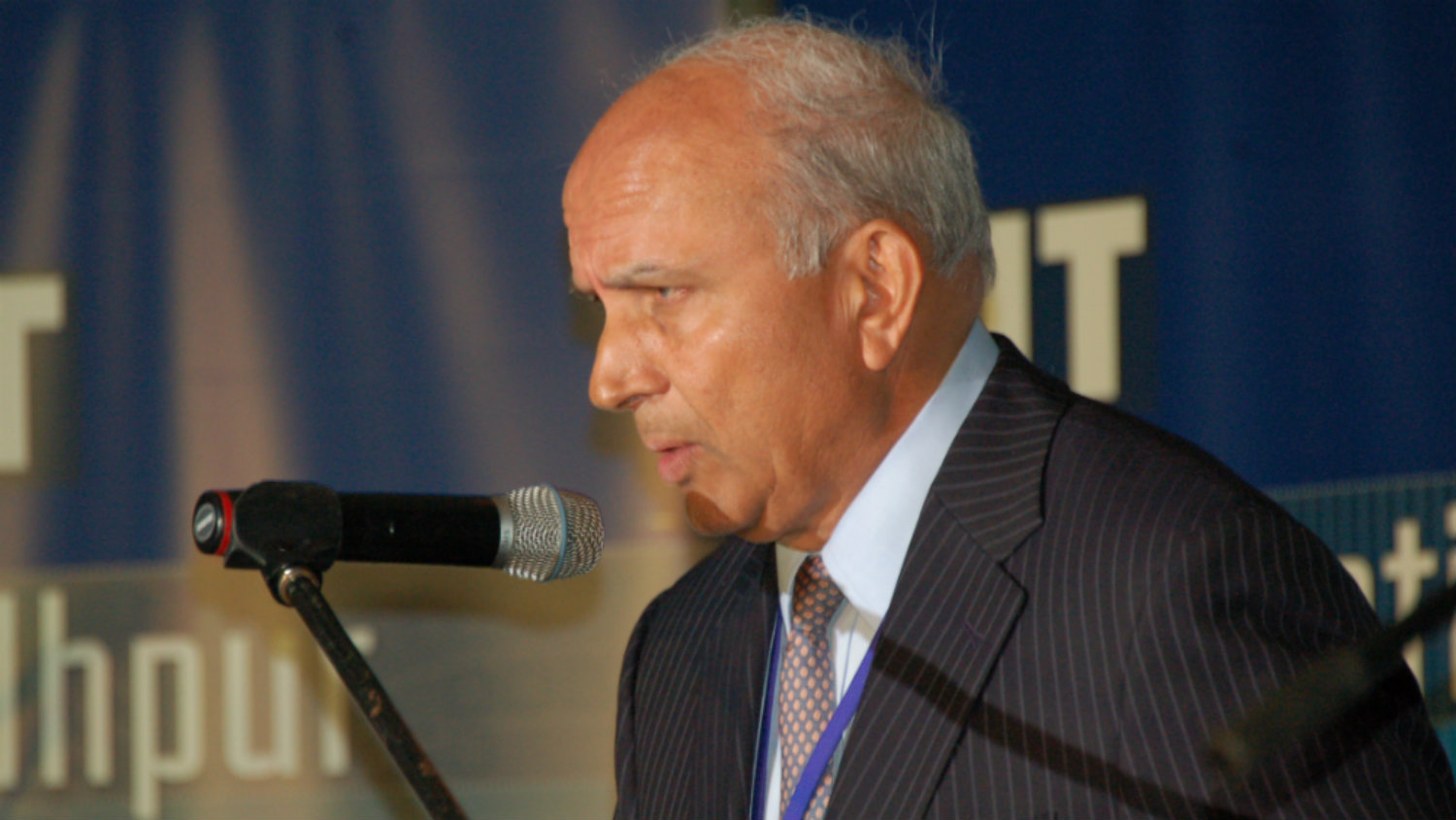In this recent global stock market correction, one of the biggest casualties has been Indian equities. India’s benchmark Nifty 50 index is down 13% from its peak in August this year.
However, the index only represents the 50 largest companies on the national stock exchange. Small- and mid-cap companies have been absolutely pulverized in recent months. Some are down more than 90%. It’s fair to say one of the most vibrant emerging markets is currently facing a vicious bear market.
While the country’s financial sector is facing a liquidity crisis on par with the subprime mortgage crisis in the U.S., local investors, the central bank, and the government remain confident about doubling India’s output within a decade. Coupled with the slide in the Indian rupee, foreign investors with a long-term horizon and a keen eye for bargains could see some interesting opportunities surface.
One such investor is Indo-Canadian billionaire Prem Watsa.
Watsa, who considers himself a value investor, has been so successful in his career that he’s been compared to the Oracle of Omaha. He’s the founder and chairman of Toronto-based Fairfax Financial Holdings, a stock that has managed to deliver a 18.5% compounded annual return to shareholders since 1985.
In 2014, at the height of India’s previous financial crisis, Watsa decided to start a local investment company known as Fairfax India Holdings (TSX:FIH.U). Now it appears this stock could be the easiest way for foreign investors to bet on India’s relentless growth in prosperity.
FIH has a relatively simple structure with only seven investments. Three of these holdings are publicly traded, one is expected to go public soon, while the rest are private.
The most interesting public investment is probably IIFL Holdings. IIFL is an international financial services company that offers wealth management and mortgages. Non-bank financial companies like this have been hit the worst in India’s recent stock market plunge.
The liquidity squeeze has wiped out exactly 50% of the company’s market value since March. Watsa, in his latest letter to shareholders, said the stock was deeply undervalued and that the long-term prospects were tremendous. IIFL continues to deliver nearly 14% return on equity and 30% annual growth in book value.
Other interesting investments include the National Stock Exchange of India — the company that manages the country’s largest stock exchange (NSE), Bangalore International Airport (BIAL), and chemicals manufacturing company Fairchem Speciality.
The FIH portfolio is well diversified and targeted at sectors that are most likely to benefit from India’s emerging middle class, growing need for infrastructure, corporate consolidation, and rising disposable income.
As a holding company with a handful of investments, valuing the stock is relatively straightforward. In fact, Watsa even mentions his estimate of the company’s fair value in the shareholder letter. He considers the intrinsic value of FIH to be a lot higher than the reported book value per share of $13.26.
At the current market price, the stock is trading much lower than Watsa’s estimate of intrinsic value and 5.5% lower than reported book value. Despite the fact that the book value is likely to be a lot lower in the third quarter, FIH still seems attractively priced for long-term investors looking for exposure to emerging markets.








